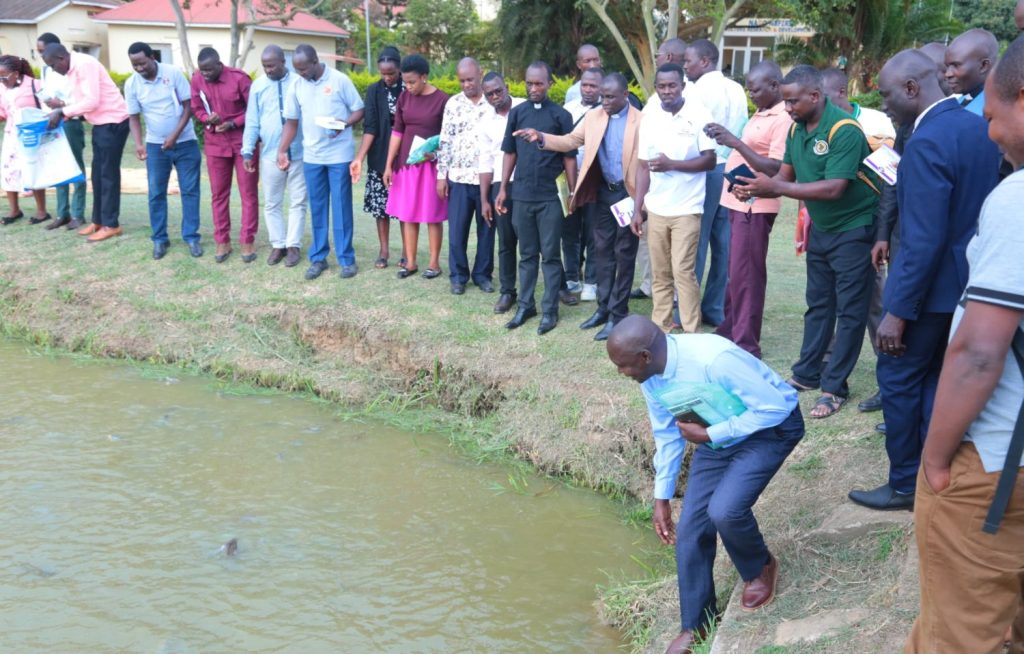Household and Community Transformation (HCT) coordinators from the 39 Dioceses of Church of Uganda have today visited the Agriculture Research and Development Centre (ARDC) in Kajjansi for a learning tour on fish farming and aquaponics.
The coordinators were accompanied by international partners: Mr. Kurt Dillinger, President and Founder of Life International; Mr. Steve Biondo, Chief Advancement Officer of Life International; and Mr. Chuck Bentley, Chief Executive Officer of Crown Financial Ministries International.
Aquaponics, an innovative farming technology that integrates fish rearing with soil-less plant cultivation, maximizes the use of organic inputs, conserves water, and provides a sustainable solution to climate change challenges while enhancing food security.
Through its Directorate of Household and Community Transformation, Church of Uganda plans to invest in aquaponics as part of its livelihoods transformation agenda—empowering households to increase food production, improve nutrition, and generate sustainable incomes.
According to Rev. Andrew Agaba, the Director of Household and Community Transformation, the Church is committed to equipping communities with climate-smart technologies such as aquaponics to strengthen resilience and reduce poverty.
Speaking on behalf of ARDC, Dr. Papias Tibihika, the Head of the Centre, commended the Church of Uganda for its commitment to promoting modern agricultural practices and pledged NARO’s continued support in providing technical guidance, training, and access to agricultural technologies.
ARDC operates under the National Fisheries Resources Research Institute (NaFIRRI), which is part of the National Agricultural Research Organization (NARO).
Today’s learning visit builds on the Memorandum of Understanding (MoU) signed between the Church of Uganda and NARO on 7th December 2022 at the Provincial Secretariat in Namirembe. The MoU focuses on enhancing the adoption of agricultural technologies across all Dioceses.
Under this partnership, NARO provides technical support, facilitates agricultural trainings, strengthens the capacity of Church leaders, and makes available or recommends equipment and inputs needed for technology adoption and promotion.

